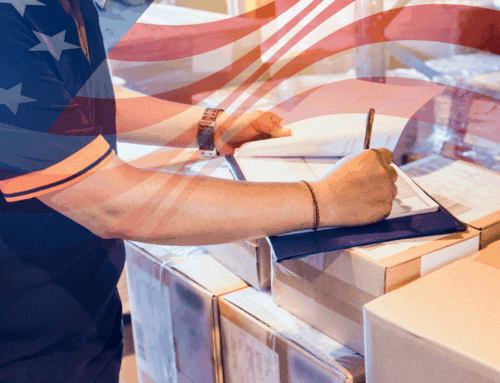Running a small business in the UK means organising countless responsibilities, one moment you’re developing products, the next you’re handling customer emails, then suddenly you’re knee-deep in managing, packing and shipping orders. With e-commerce sales continuing to grow, small businesses are under more pressure than ever to deliver fast, reliable, and cost-effective fulfilment.
This is why many UK SMEs are turning to outsourced fulfilment providers (known as a 3PL partners). But what’s driving this shift, and how exactly does it benefit small businesses? Here’s what we think:
What is outsourced fulfilment?
Outsourced fulfilment means handing over the storage, picking, packing, and shipping of your products to a specialist partner. Instead of renting a warehouse, hiring and training staff, and managing logistics yourself, a 3PL company takes care of the entire process on your behalf.
Typical outsourced fulfilment services include:
- Warehousing and inventory management.
- Order picking, packing, and dispatch.
- Returns handling.
- Integration with e-commerce platforms (Shopify, WooCommerce, Amazon, etc.).
- Shipping via trusted couriers.
For many small businesses, this model provides a scalable and affordable way to compete with larger retailers without shouldering all the operational complexity.
Why do UK SMEs choose outsourced fulfilment?
1. Reducing costs while staying flexible
Maintaining your own warehouse space in the UK is expensive. Rent, business rates, utilities, staff wages, insurance, and equipment can quickly eat into profits. By outsourcing fulfilment, costs are variable, not fixed, ideal for SMEs with seasonal demand or fluctuating order volumes. Some companies like Flight Logistics also offer fluid storage costs that relate to the actual number of items and storage space you need on a given month.
According to the Federation of Small Businesses (FSB), cash flow is one of the top three challenges faced by SMEs in the UK. Outsourcing logistics helps protect cash reserves and keeps overheads low.
2. Meeting customer expectations for speed
UK consumers are used to next-day delivery and often choose retailers who can offer it. For a small business, packing and posting orders manually can lead to delays and poor reviews.
Fulfilment partners already have:
- Streamlined warehouse operations.
- Bulk courier agreements that cut costs and speed up delivery.
- Automation to ensure orders are dispatched same-day.
Result: even a small business can offer Amazon-like delivery experiences without having Amazon’s resources.
3. Focusing on what really matters
For many entrepreneurs, logistics is a distraction. Their real strengths are in product development, marketing, and customer engagement. Every hour spent printing labels or queueing at the Post Office is time not spent on growth.
By outsourcing fulfilment, small businesses can:
- Spend more time on sales and branding.
- Develop new products.
- Build partnerships.
This shift in focus often translates into faster growth and stronger customer loyalty.
4. Leveraging advanced technology
Modern fulfilment is powered by technology that would be costly for small businesses to build in-house.
A 3PL typically offers:
- Real-time inventory visibility via dashboards.
- Automatic order syncing across multiple sales channels.
- Analytics and reporting on stock levels, returns, and sales patterns.
This level of data insight helps SMEs make better decisions, from when to reorder stock to which products are most profitable.
5. De-risking international shipping
Many UK small businesses are selling internationally, particularly into the EU and US. But international shipping is complex: customs paperwork, VAT/IOSS compliance, duties, and local regulations can all cause headaches.
A good fulfilment partner offers:
- Expertise in customs and compliance.
- Transparent VAT and duty handling.
- Packaging solutions for fragile or high-value goods.
This minimises risk and ensures customers abroad have the same smooth experience as those in the UK.
6. Supporting sustainable growth
Sustainability is no longer optional, customers expect businesses to take environmental responsibility seriously. Fulfilment partners like Flight Logistics Group provide:
- Recyclable or biodegradable packaging.
- Carbon offsetting initiatives.
- Efficient shipping routes to reduce emissions.
For small businesses, partnering with a 3PL can support eco-friendly goals while demonstrating to customers that the brand is acting responsibly.
Real-world example: a growing UK brand
Imagine a small UK skincare brand experiencing steady growth through Instagram and Shopify. Initially, the founders stored products in their garage and managed shipping themselves. But as orders increased, they faced:
- Late nights packing boxes.
- A lack of space.
- Customer complaints about delivery delays.
After partnering with a fulfilment provider, they:
- Reduced storage and staffing costs.
- Offered next-day delivery through courier networks.
- Saw repeat orders increase due to improved customer experience.
This example highlights why outsourcing isn’t about giving up control, it’s about unlocking growth potential.
FAQs: Outsourced fulfilment for small businesses
Is outsourced fulfilment too expensive for small businesses?
Not necessarily. Costs are often lower than managing logistics in-house because you only pay for what you use.
Will I lose control of my brand experience?
No, you can still specify packaging, inserts, and returns policies. Many 3PLs work as an extension of your brand.
Do I need a minimum number of orders?
Some providers specialise in start-ups and SMEs with lower order volumes, while others require minimum monthly shipments. It’s worth finding a partner that fits your stage of growth.
Can fulfilment providers handle fragile or unique products?
Yes. Many UK 3PLs have specialist packaging and handling expertise for items like cosmetics, art, or ceramics.
Conclusion: A growth partner for UK SMEs
Outsourced fulfilment has become a strategic advantage for small businesses in the UK. By reducing costs, speeding up delivery, and providing access to advanced logistics systems, fulfilment partners allow SMEs to compete with larger retailers while staying focused on growth.
For many, outsourcing isn’t just about logistics, it’s about unlocking the time, resources, and confidence needed to scale.
If you’re a UK business looking to streamline your operations and deliver a first-class customer experience, learn more about our e-commerce fulfilment services and see how we can help you grow.













